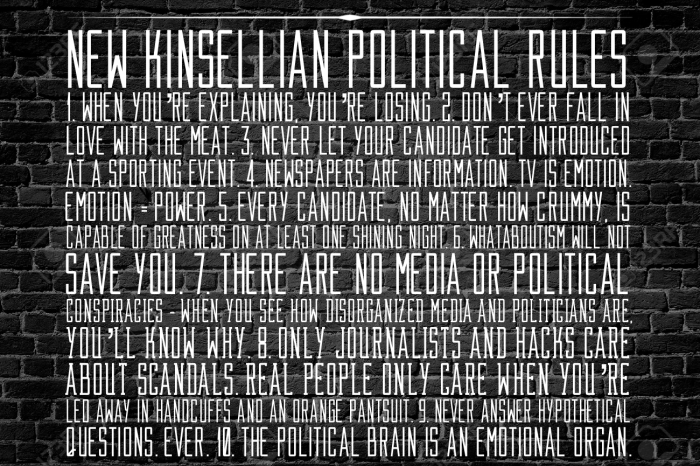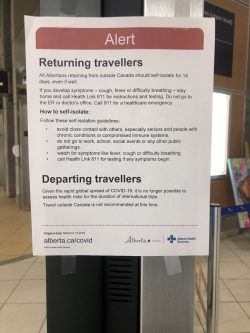My living will, Jake Tapper and Brian Goldman
A living will is sometimes called an advance care planning document, or an advance directive. I call mine a living will, like the Americans do.
Basically, it’s a document that describes the care I would (and would not) want to receive if I’m not able to communicate my wishes about medical treatment.
My Dad had one, and he suggested we all get one, too. He was a doctor. He used to take me and my brothers to the hospital with him, sometimes, to gently remind us that sickness and death are part of the deal for all of us.
So, I got a living will. Originally, it was to give guidance to the love of my life and my youngest brother. But the love of my life dumped me, and my younger brother is far from where I am. (Everyone is far from where I am, these days.)
I got in touch with my estate lawyer, then, yesterday. He’s an amazing guy and a longtime friend. I told him I wanted my living will amended to specifically exclude the use of a ventilator or CPR when and if I get sick.
I decided to do that because of two people – Jake Tapper on CNN, and Brian Goldman on CBC. Truth.
I’m not friends with Jake Tapper, but I admire his journalism and his integrity very much. I periodically tweet funny stuff at him and he tweets funny stuff back.
A couple days ago, however, he had a New York doctor on his show and what the doctor said actually shocked me. The doctor said ventilators prolong “life,” but they don’t restore it.
Nobody ever really comes off the ventilators, he said. The clip is here, sent along by Jake Tapper. Around the four minute mark.
That shook me. I didn’t know that. I hadn’t heard that before.
Then, around the same time, Dr. Brian Goldman – the well-known CBC Radio doctor, and a friend who has given me advice that has helped get me through aforementioned difficult times – tweeted that, if he got sick, he would refuse a ventilator and/or CPR.
I thought about that for a minute, and then I tweeted: ditto. Use the machines on someone else. No heroic measures.
So, there you go. I told my daughter last night at supper, and now I’m telling you guys. None of my sons or brothers are around here to tell, so I’m telling you. I’m doing that to ensure it gets communicated to the right people at the right time, if needed.
Now, I’m pretty healthy. No health problems, no allergies, no headaches, no “underlying conditions” at all. I exercise, I eat right, I don’t do drugs, I dislike booze, I’ve never smoked, all that.
But this disease doesn’t discriminate. Young or old, rich or poor, healthy or not. So, if I get it – and, the available data suggests many of us will, eventually – I want the ventilators and doctors and nurses to focus their remedial efforts on more-deserving others. (If I get it bad, that is. Maybe I won’t. Who knows.)
Death is part of life, my Dad used to say to me and my brothers. So, if death beckons, all of you guys now know what I want, too.
You’re my living will. I’d shake your hand and thank you, but that’s not advisable in the current circumstances.
So it goes, I like to say.



